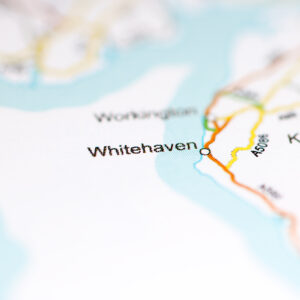
If you live in West Cumbria, we want to hear from you about the future of inpatient mental health services in your area. We want to speak to as many people as possible to help us shape the services we provide in West Cumbria.
In particular, we want to talk to you about your thoughts on the future of adult acute inpatient mental health services, including Yewdale Ward.
We are working hard alongside other health, care, and charitable organisations to improve mental health services in West Cumbria. We want to support people earlier, so that fewer people get to the point that they must go into hospital.
The agreement to develop a new 24/7 Hub in Whitehaven town centre is an exciting opportunity to do more of this. It will bring together specialist health, social care, and community services, so people can get the right help, at the right time.
Sometimes if people are very unwell, there is no alternative but to care for them on a specialist inpatient mental health ward in hospital. When people do need to stay in hospital, we want to make sure they have the best possible care, so they can recover and get home quickly.
Most of our specialist mental health wards in Cumbria are based at the Carleton Clinic in Carlisle.
However, one of our wards, Yewdale Ward, is part of West Cumberland Hospital in Whitehaven. Yewdale Ward has 16 beds. It supports men and women with severe mental health problems who need treatment in hospital.
The rest of the services at West Cumberland Hospital are physical health services (where people might go for surgery, diagnosis, or treatment of problems with parts of their body). These are run by a different NHS Trust; North Cumbria Integrated Care NHS Foundation Trust (NCIC). Our Yewdale Ward is the only specialist mental health service based there.
Concerns have been raised for many years regarding the ability to provide high quality, safe services in West Cumbria. Some of these concerns are outlined below:
- Because Yewdale is about 40 miles away from our other services at the Carleton Clinic, it is very isolated from these other wards. This means that when the ward needs support (for example, if there is an incident, or staffing problems) it is much harder to provide this. This also makes it harder for senior management to provide oversight and support for the ward.
- Despite our best efforts over many years, with only one specialist mental health ward in this isolated area, it is very hard to recruit enough of the right staff to run Yewdale Ward properly. Because of this, the ward relies a lot on temporary and agency staff, and virtual links with clinicians at other locations. We especially struggle to recruit doctors and consultants into this area. The nurses and healthcare assistants working at Yewdale do a fantastic job. But not having consistent, specialist staff on-site really affects the quality of care that we are able to give people. For example, some patients cannot meet in-person with the clinician who is responsible for their care, because they do the job remotely. This is not the high standard of care we want to give to people who are in hospital.
- The physical space of Yewdale Ward is also no longer ‘fit for purpose’ to deliver modern mental health care services. It is our only ward where men and women are still housed and treated together. This of course presents challenges when it comes to the comfort and safety for our patients, staff, and visitors. We are also not able to get improvements made to the building to the standard that we would like.
No decisions have been made yet about changes to adult mental health inpatient services in West Cumbria, including the future of Yewdale Ward. But these are the reasons that we are now considering the future of inpatient services in West Cumbria. We would like to seek your views in helping to shape those services. We want to hear from you.
This engagement process offers a chance for everyone impacted by potential future changes to learn more about the challenges services are facing, and to help shape the changes we need to make.
Please note, this engagement process is now closed (as of 21 January 2025).
Listening events
We held a number of in-person listening events throughout November and December 2024, and two online events in January 2025.
Frequently Asked Questions (FAQs)
Below are the answers to some questions which people have been asking us about the challenges described above. Click on a question to expand it and see the answer:
